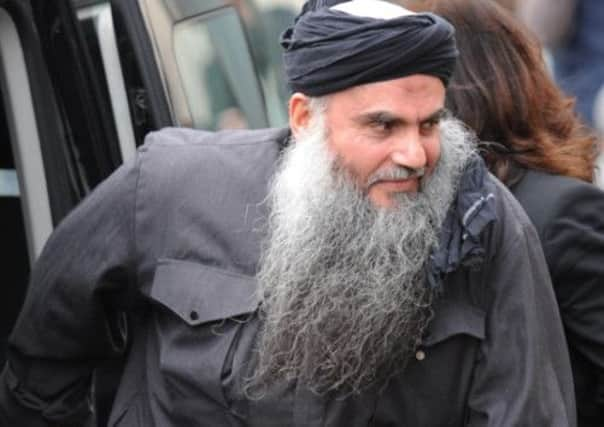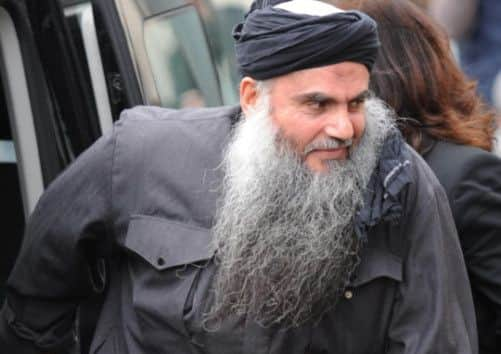UK may withdraw from Human Rights pact to expel Qatada


Asked whether this course of action was on the table, Prime Minister David Cameron’s official spokesman told reporters: “We are going to explore every option.”
Home Secretary Theresa May will update MPs on the Government’s plans in a statement in the House of Commons later today, following the latest setback in the long-running battle to deport the cleric, once seen as Osama bin Laden’s right-hand man in Europe.
Advertisement
Hide AdAdvertisement
Hide AdThe Home Office is planning to apply directly to the Supreme Court for permission to challenge a Court of Appeal ruling that Qatada cannot be deported to Jordan over fears that evidence obtained through torture would be used against him.


The Appeal Court yesterday refused permission for Mrs May to challenge its March ruling at the Supreme Court, forcing the Home Secretary to take her case direct to the highest court in the land.
Mr Cameron immediately summoned Mrs May, Justice Secretary Chris Grayling and Attorney General Dominic Grieve to what was described as a “council of war” to discuss all available options for removing Qatada.
A Number 10 source said following the meeting that the appeal process had to be gone through but the Prime Minister wanted to explore all ways to “get him out of the country” if it failed.
Advertisement
Hide AdAdvertisement
Hide AdAsked at a daily Westminster media briefing today whether this included the possibility of a temporary withdrawal from the ECHR, Mr Cameron’s spokesman said: “I am not going to get into specifics on the details of what the Government is considering, but we are going to explore every option.”
The Home Office said it was “disappointed” with the Court of Appeal’s decision, but added: “The Government remains committed to deporting this dangerous man and we continue to work with the Jordanians to address the outstanding legal issues preventing deportation.”
The Supreme Court process involves consideration by three justices of a permission to appeal application. They decide whether the application raises a point of law of general public importance.
At the Court of Appeal last month, Mrs May’s lawyers challenged a ruling made in November by immigration judges on the grounds that Qatada was a “truly dangerous” individual who had escaped deportation through “errors of law”.
Advertisement
Hide AdAdvertisement
Hide AdBut three appeal judges said the Special Immigration Appeals Commission (Siac) was entitled to conclude that disputed statements will be used against Qatada.
Qatada, who featured in hate sermons found on videos in the flat of one of the 9/11 bombers, has thwarted every attempt by the Government to put him on a plane.
A resident in the UK since September 1993, he was returned to jail last month after he was arrested for alleged bail breaches.
Police searched Qatada’s family home in London before he was held and have since said that he is being investigated over extremist material.
Advertisement
Hide AdAdvertisement
Hide AdShadow home secretary Yvette Cooper said after the decision was announced: “A year ago, Theresa May promised Abu Qatada would soon be on a plane. Now it is clear her legal strategy has completely failed. The Home Secretary must tell us urgently what she is going to do now to get Abu Qatada deported or tried, and keep him off our streets.”